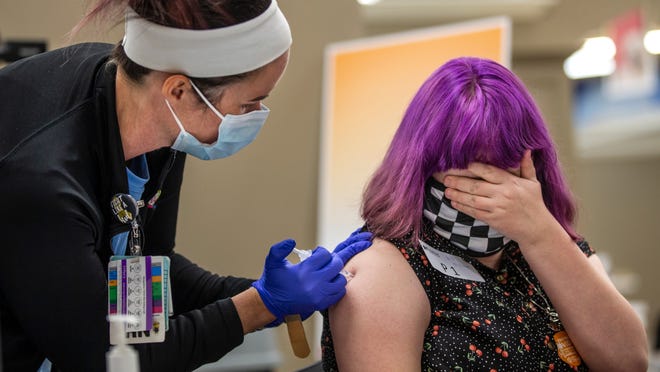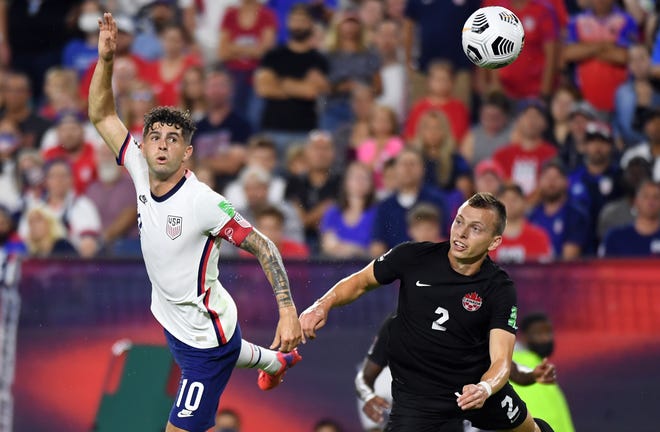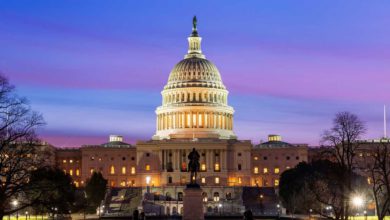
The vaccination rate for U.S. adults will surpass 50% today, according to the White House. Vaccination rates still vary by state, however, and officials have stressed that the coronavirus will continue to spread in communities with lower levels of vaccinations. At least 25 states have fully vaccinated at least half of their adult residents, according to data published by the Centers for Disease Control and Prevention.
President Joe Biden has set of goal of getting at least one shot into the arm of 70% percent of adults by July 4th. More than 60% of adults have now had at least one shot.
– Maureen Groppe
Also in the news:
►More than half of U.S. adults are now fully vaccinated against COVID-19 in 25 states, the District of Columbia and Guam, according to Centers for Disease Control and Prevention data.
►Ahead of the Tokyo Olympics this summer, the U.S. State Department raised Japan to "Level 4 - do not travel" on Monday because of COVID-19, and the CDC indicated a "very high" level of the coronavirus and recommended not traveling to the country.
►Puerto Rico has ended a nightly pandemic curfew after more than a year in force and will allow vaccinated visitors to enter the island without a negative coronavirus test result.
►Florida is joining a growing list of Republican-led states that plan to end participation in a federal program that gave an extra $300 per week in benefits to the unemployed during the pandemic.
►New York Mayor Bill de Blasio said all the city's public schools will be back full time, in-person in September. No remote option will be offered, the mayor said in an interview on MSNBC. Los Angeles Unified School District, in contrast, will start the new school year next fall with on-campus, in-person instruction but will retain an online option, Superintendent Austin Beutner said Monday.
? Today's numbers: The U.S. has more than 33.1 million confirmed coronavirus cases and 590,500 deaths, according to Johns Hopkins University data. The global totals: More than 167.1 million cases and 3.46 million deaths. More than 357.25 million vaccine doses have been distributed in the U.S. and more than 286.8 million administered, according to the CDC. More than 130.6 million Americans have been fully vaccinated – 39.3% of the population.
? What we're reading: People with compromised immune systems face potential threat from people not vaccinated for COVID-19. Read more here.
Keep refreshing this page for the latest updates. Want more? Sign up for our Coronavirus Watch newsletter for updates to your inbox and join our Facebook group.
Canceling Tokyo Olympics would cost $1.7B. Holding them could cost more.
Canceling the Tokyo Olympics and Paralympics would cost Japan $1.7 billion, but proceeding with the games and then declaring another coronavirus state of emergency would be even more costly, Japan's Kyodo News Service reported Tuesday. The Japanese government, the International Olympic Committee and athletes around the world are hoping the games can take place. The U.S. consistently fields one of the largest and most successful teams. But the U.S. on Monday advised its citizens not to visit Japan due to the COVID-19 crisis, raising its travel alert to the highest level of 4.
Tokyo is one of several areas of the country under a state of emergency due to a surge in infections. The status is due to expire Monday, but officials are considering an extension of at least two weeks. Nearly 60% of respondents in a Kyodo News survey in mid-May said the games should be canceled.
Takahide Kiuchi, executive economist at the Nomura Research Institute, told Kyodo that a post-games spike in cases and hospitalizations could bring more economic hardship to the region.
"Even if the games are canceled, the economic loss will be smaller than (another) a state of emergency," Kiuchi said.
'Baby bust' in California linked to pandemic
The pandemic, affordable IUDs and increasing costs of living have more California adults opting for contraceptives over starting a new family. As a result, California is expected to see 50,000 fewer births in 2021, according to the Los Angeles Times.
IUDs – intrauterine devices – continue to grow as a popular form of contraception, especially after the Affordable Care Act made the option free for most patients. The long-last contraceptive that prevents pregnancy for up to 12 years attracted women because it was a one-time procedure that is more accessible than some birth controls that are restricted by politics and some insurances. Job losses and other pandemic related issues made many people rethink family plans.
"The pandemic freaked people out,” said Ponta Abadi, a reproductive health expert. “It caused a lot of people to lose their jobs and affected whether they wanted to have kids.”
Moderna says its vaccine is 100% effective in kids ages 12-17
Moderna announced Tuesday that its vaccine was 93% effective after the first dose in children 12 to 17, and 100% effective two weeks after the second dose.
The trial, which involved more than 3,700 adolescents, also identified no serious safety concerns, data from Moderna said. The company expects to apply for emergency use authorization for its vaccine from the Food and Drug Administration to allow children as young as 12 to receive it.
Currently, the only vaccine approved for kids as young as 12 Pfizer and BioNTech's vaccine, which was approved in early May. Moderna previously faced issues enrolling enough teens into the trial. But depending on when the FDA application is made and how quickly it is processed, it could offer families more choices for vaccinating children over the summer vacation and before the 2021-22 school year begins.
– Elizabeth Weise and Karen Weintraub
Suicides dropped at height of pandemic
Deaths by suicide fell 9% at the height of the pandemic shutdown compared with previous years, a surprise given increases in reported levels of stress, anxiety and depression. There were more than 2,400 fewer deaths by suicide from March to August 2020 than normally would have been expected, said Dr. Jeremy Samuel Faust, an emergency physician in the Division of Health Policy and Public Health at Brigham and Women’s Hospital in Boston and an instructor at Harvard Medical School.
Thomas Joiner, a professor of psychology at Florida State University and an expert on suicide, thinks the expanded availability of mental health services via telehealth, such as counseling calls by phone or computer, may have been part of the reason.
"Access went up and telehealth was a better platform than many of us anticipated," he said.
– Elizabeth Weise
70% of Brits have had at least one vaccine dose
As the United Kingdom reopens its economy, including lifting restrictions on travel and hospitality, experts are warning of a surging variant even as inoculations remain relatively high. The variant, first discovered in India and surging there in the past few months, is present in at least 49 countries, including the U.K. Scientists, who are sequencing half of coronavirus cases, say it is "highly likely" to be more transmissible than Britain's variant. But inoculations in the U.K. remain some of the highest in the world, because of a nationalized vaccine campaign. 70% of adults in the country have had a first vaccine dose, according to BBC. British health officials said Sunday that the Pfizer and AstraZeneca vaccines offer effective protection against the India variant.
"If vaccination reduces the likelihood of transmission for this variant, increasing regional vaccination in areas where it is prevalent could dampen growth in infections, although it takes several weeks for vaccines to provide protection," the study says.
Travel bans put staffing crunch on summer camps
American summer camps are up against the same staffing crunch plaguing other employers seeking lower-wage workers, but with a lingering pandemic twist. Many camps rely on foreign workers who come on temporary, cultural-exchange visas. Because of processing holdups and a COVID-19-related travel ban on certain countries, those workers aren't coming. The staffing woes are complicating what would otherwise be a booming year for summer camps. With the pandemic on the wane in the U.S., families are eager to send their children to in-person opportunities again – and many have the money to do it, after a year of saving on activities.
"We’re going to see more camps that can’t open or have to cut capacity," said Scott Brody, the director of two summer camps in New Hampshire. Read more here.
– Erin Richards
3 Wuhan researchers ill before first cases revealed in 2019
China on Monday denied a report that three Wuhan Institute of Virology employees were hospitalized with possible coronavirus symptoms in November 2019, a claim that if true would further fuel debate over the origins of the pandemic. The Wall Street Journal cited a U.S. intelligence report saying the previously undisclosed information provides fresh details on the timing of the hospital visits about a month before China reported the first infections. China and the World Health Organization have downplayed calls for a broader investigation into whether the virus could have escaped from the laboratory.
White House press secretary Jen Psaki, asked about the controversy Monday, said the administration has been pressing for an international investigation led by the WHO.
"We need that data. We need that information from the Chinese government," she said. "What we can't do, and what I would caution anyone doing, is leaping ahead of an actual international process."
China's foreign ministry spokesman, Zhao Lijian, also called the claim "completely untrue."
"The U.S. continues to hype the lab leak theory. Is the real intention to express concern over the virus origin or to divert attention?" Zhao asked.
Contributing: The Associated Press
Source link








